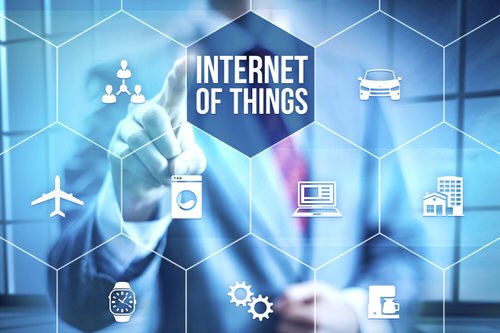
The Internet of Things (IoT) describes a whole genre of technologies and services that focus on creating a network connection between everyday objects. These objects include just about anything from industrial machinery to your water bottle.
It is almost impossible to talk about the future of of tech, the Internet and almost any industry without hearing the phrase, “Internet of Things.”
But what that really means is a growing network — a broader Internet — filled with networked devices that go way beyond desktops, laptops, and smartphones. These devices will be connected together so that they can track and communicate data with the cloud opens the door to a whole new world of possibilities.
Some popular IoT examples
Your car, for example, w1ill soon be able to drive itself around town. No steering wheel or pedals required! This is possible because of improved sensor technology and artificial intelligence that is capable of surveying the surrounding area, receiving accurate positioning via GPS, and making decisions faster than the human mind. The result is safer transportation that frees you up to accomplish more in a time that would otherwise be spent behind the wheel.
It includes wearable devices like your wristwatch can connect wirelessly to your phone via Bluetooth, enabling it to sync data to and from the Cloud. The number of steps you take during the day, your heart beat, and even your sleep quality can be monitored and stored in the cloud so you can access that information from anywhere.
What IoT means to the consumer
Thanks to IoT technologies, your home would be smarter. Your blinds could open and close with the sun, your air conditioning system could track the location of people inside the home to maximize efficiency by targeting cooling where it is actually needed. Your refrigerator could let you know when food is about to expire and add items to your shopping list automatically. These solutions all fall under the IoT umbrella, and this is really just the beginning.
For many homeowners, IoT technologies are already in place and work invisibly. Smart meters that measure electricity usage in a home have all but replaced traditional mechanical meters that would be ready by a technician once per month. These smart meters make it possible for you to log in to your electric company’s website and see exactly how much electricity you used on a given day, or even a specific hour.
A new industrial revolution
In an industrial application, IoT technologies power heavy machinery and provide critical information about the state and goings on of a complex production environment. IoT sensors can track a machine’s efficiency and activity and make way for improved automation processes. Huge amounts of data can be sent to a single control room where someone can monitor and control an entire production floor from a single point.
Security is another big area where IoT technologies can be put to good use. Home security systems are already becoming widely available with integrated apps and cloud-based monitoring so you can lock your doors and arm security systems from your phone rather than having to do so from a keypad in the home. You can do things like give someone access to the house temporarily from anywhere in the world.
To put it simply: The Internet of Things may be a buzzword, but it’s the best simple term we can use to describe the modern Internet. It describes an environment where your laptop, phone, and even your car are able to communicate with one another in order to make your life easier.
Copied from here: http://readwrite.com/2016/06/28/what-is-the-internet-of-things/
Please downvote.
Downvoting a post can decrease pending rewards and make it less visible. Common reasons:
Submit
Upvoted you
Downvoting a post can decrease pending rewards and make it less visible. Common reasons:
Submit